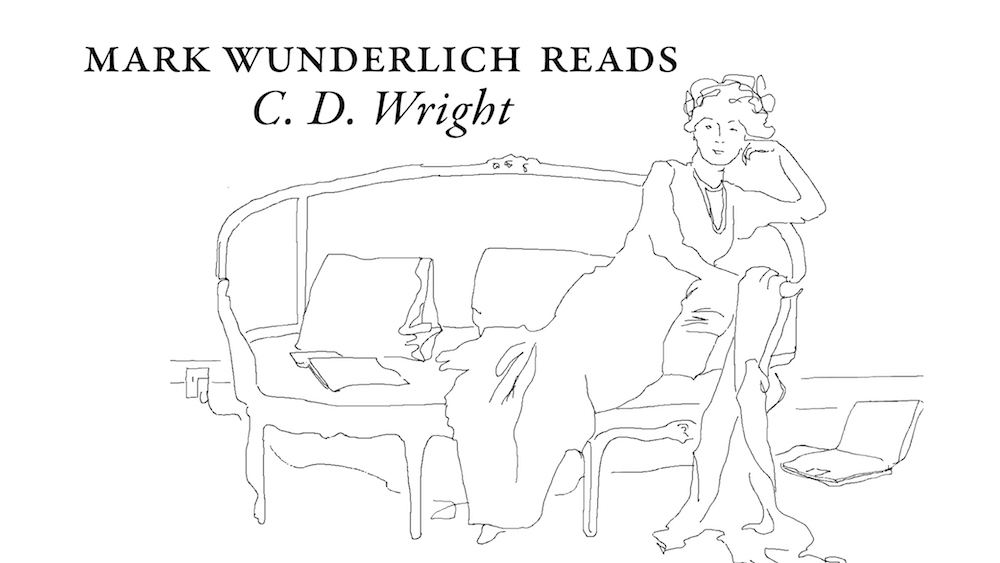In our new series of videograms, poets read and discuss the poems getting them through these strange times—broadcasting straight from their couches to yours. These readings bring intimacy into our spaces of isolation, both through the affinity of poetry and through the warmth of being able to speak to each other across the distances.
“Our Dust”
by C.D. Wright
Issue no. 109 (Winter 1988)
I am your ancestor. You know next-to-nothing
about me.
There is no reason for you to imagine
the rooms I occupied or my heavy hair.
Not the faint vinegar smell of me. Or
the rubbered damp
of Forrest and I coupling on the landing
en route to our detached day.You didn’t know my weariness, error, incapacity.
I was the poet
of shadow work and towns with quarter-inch
phone books, of failed
roadside zoos. The poet of yard eggs and
sharpening shops,
jobs at the weapons plant and the Maybelline
factory on the penitentiary road.A poet of spiderwort and jacks-in-the-pulpit,
hollyhocks against the tool shed.
An unsmiling dark blond.
The one with the trowel in her handbag.
I dug up protected and private things.
That sort, I was.
My graves went undecorated and my churches
abandoned. This wasn’t planned, but practice.I was the poet of short-tailed cats and yellow line paint.
Of satellite dishes and Peterbilt trucks. Red Man
Chewing Tobacco, Black Cat Fireworks, Triple Hit
Creme Soda. Also of dirt dobbers, nightcrawlers,
martin houses, honey, and whetstones
from the Novaculite Uplift. What remained
of The Uplift.I had registered dogs 4 sale; rocks, dung,
and straw.
I was a poet of hummingbird hives along with
redheaded stepbrothers.The poet of good walking shoes—a necessity
in vernacular parts—and push mowers.
The rumor that I was once seen sleeping
in a refrigerator box is false (he was a brother
who hated me).
Nor was I the one lunching at the Governor’s
mansion.I didn’t work off a grid. Or prime the surface
if I could get off without it. I made
simple music
out of sticks and string. On side B of me,
experimental guitar, night repairs and suppers
such as this.
You could count on me to make a bad situation
worse like putting liquid make-up over
a passion mark.I never raised your rent. Or anyone else’s by God.
Never said I loved you. The future gave me chills.
I used the medium to say: Arise arise and
come together.
Free your children. Come on everybody. Let’s start
with Baltimore.Believe me I am not being modest when I
admit my life doesn’t bear repeating. I
agreed to be the poet of one life,
one death alone. I have seen myself
in the black car. I have seen the retreat
of the black car.
Mark Wunderlich is author of three critically acclaimed books of poetry, and his poems, interviews, reviews, and translations have appeared in journals such as Slate, The Paris Review, and Poetry, and in more than thirty anthologies.
from The Paris Review https://ift.tt/3bwp5fh

Comments
Post a Comment